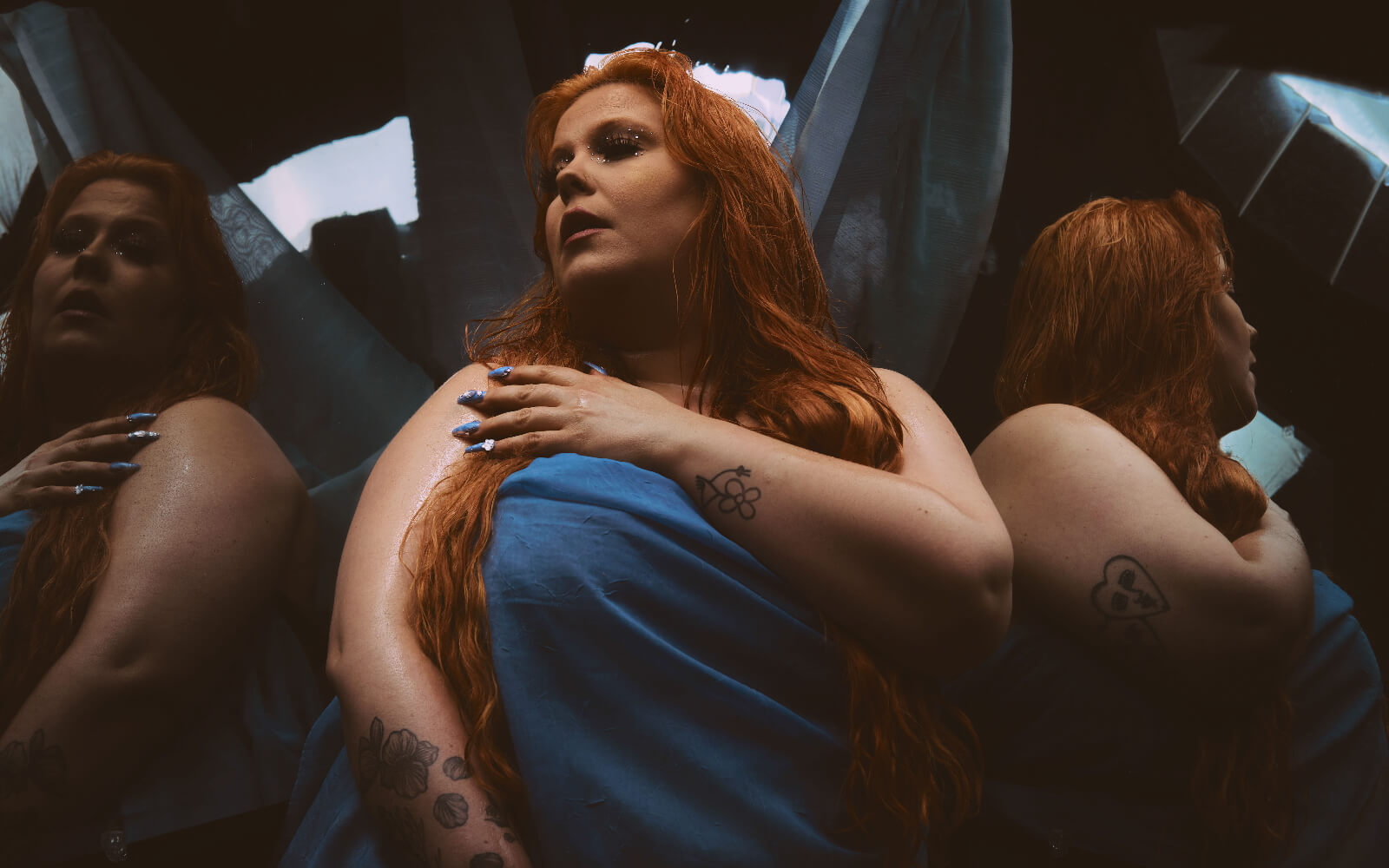By Stephan Boissonneault
With There Is Nothing In The Dark That Isn’t There In The Light, the veteran vocalist leans into intimate, searching folk.
The unadorned welcome to the album, the follow-up to her 2019 debut Fear, speaks to the honesty within Powder Blue. As the Winnipeg-based artist sings about heartbreak, painful memories, her sexuality, faith, and love, it’s a record where no topic feels off limits. On “Marigold,” for instance, Dirks takes listeners back to school with her as she tries to reconcile her crushes on girls. She concludes the track by singing, “I might be unsteady but maybe I’m ready.” Dirks doesn’t have all of the answers, and she’s learning to be comfortable with that.
“I just try to be as authentic as I can. I’m finding myself in real time, and that’s how it’s always been. If I waited until I had the answers to everything, I would never put out a record because I would never feel confident enough,” Dirks tells RANGE from her home in Winnipeg.


Up until the pandemic, touring was a constant in Dirks’ life. During a lockdown period in early 2021, she even released an emotional, barebones lament for touring called “off the road again.” Being on stage is the only time Dirks’ anxious mind quiets a little, or as she describes, the hamster that’s always running rapidly on its hamster wheel inside her brain slows down to a light stride.
So when Dirks was forced to stay home for what she thought would be one month, which turned into two, which turned into many, she struggled.
“About six months in [to the pandemic] my manager was like, ‘Hey, I’m worried about you,’ and when people around you start saying things like that, it’s like, ‘Damn, I’m not hiding it anymore.’ Suffice to say, I was not making shit for the first year,” Dirks says about her artistic output during the initial lockdown periods. “I did not spring into action and I was not riffing Joni Mitchell-esque riffs about the power of life. I was doom-scrolling, not getting out of bed, and I bought a TV.”

Dirks eventually started prioritizing self-care: she now goes to therapy, takes medication, and tries her best to balance work and rest. “I’m striving to be better all the time,” she notes. When she eventually started to write and record the songs that would become Powder Blue with close collaborators and producers Matt Schellenberg and Matt Peters, there was no release schedule. She just needed to get out of her house and focus on something new. Writing these songs also became a way for Dirks to start processing some emotions she had been avoiding.
“A lot of this record is based on memories and things that perhaps I was running away from for so long,” Dirks explains. “When we, the collective we, had time to sit in our homes, that’s when a lot of things started to creep up.”
The uncertainty around the release of the new songs led Dirks to make creative choices that she would have previously shied away from. She says a track like “Married By Elvis,” a deliciously sweet love song, wouldn’t have made the record in the past and explains that she would have been too afraid of people hearing that side of her. But for Powder Blue, a mostly playful sounding pop record that puts soft sounds at the forefront, Dirks was able to release some of the worries that limit her. And by doing so, she also accessed a newfound confidence.
“Part of me let down some of those guards because I was like, ‘Who the fuck cares anymore?’ I have fun singing in certain styles but I’ve held back because I think ‘Oh, that’s not me.’ But that came out of me very easily, so that is me,” she says. “With the last record, I thought, ‘I’ve said everything that I need to say. How am I ever going to write another record?’ And then years passed and I’m like, ‘Oh, no, there’s so much more to say.’ That’s just what I hope continues to happen. I will be an artist for life, whatever that means, in whatever capacity. So there will be more. There is always going to be another song to sing and another thing to sing about. Whether or not it comes to me immediately or years from now. I’m learning to trust the process a little more too, and trust myself and my instincts.”
By Stephan Boissonneault
With There Is Nothing In The Dark That Isn’t There In The Light, the veteran vocalist leans into intimate, searching folk.
By Sam Hendriks
A refined turn toward clarity reveals Melody Prochet at her most grounded and assured.
By Judynn Valcin
Inside the Montréal musician’s shift toward ease, openness, and a sound that refuses to collapse even as it teeters.